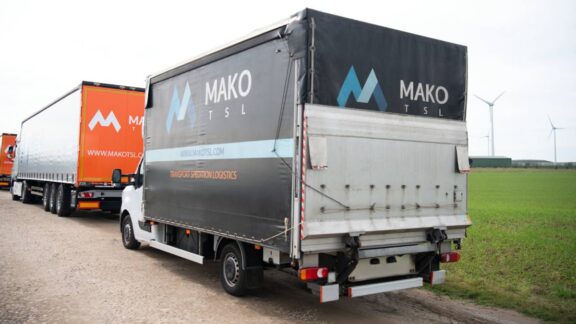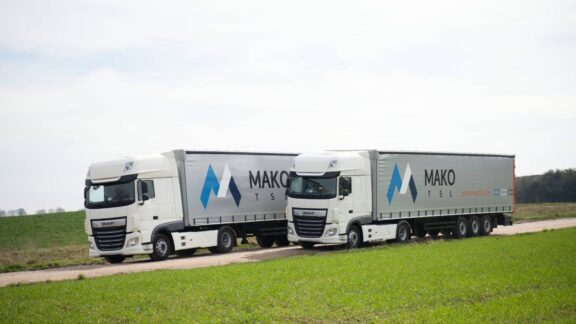The TSL industry is the lifeblood of the European economy, and the free movement of goods and people within the Schengen area is its foundation. As of July 7, 2025, Poland has temporarily reintroduced controls at border crossings with Germany for 30 days. What does this mean for road transport and the entire TSL industry? At MAKO TSL, we are taking a closer look at the consequences.
Direct impact of border closures on road transport
The Council of Ministers’ decision to reintroduce border controls aims to limit illegal migration. It is widely seen as a response to controls carried out by Germany since October 2023.
The most noticeable effect of this decision will be a significant increase in the time needed to cross the border. Previously, due to German controls, delays ranging from 15 to 40 minutes were reported. The introduction of controls also on the Polish side, according to public services, could potentially double these times, leading to estimated queues of 60-90 minutes during peak hours.
At the end of May, we wrote about the challenges related to the introduction of customs tariffs, and today, even though the borders formally remain open, the overall capacity of border crossings will be significantly limited. The physical narrowing of traffic lanes to one at control points will inevitably reduce the overall flow of vehicles.
Such situation seriously undermines the predictability of delivery times and reduces their efficiency. Furthermore, delays can lead to violations of drivers’ working time regulations and missed delivery deadlines.
Economic consequences for the TSL industry
Every hour a vehicle is stopped or its travel time is extended, regardless of whether it’s a delivery van, a solo truck, or a 13.6-meter set, directly translates into increased costs for the transport company, and consequently for the Client. These include increased fuel consumption due to standing still and moving in congestion, higher driver wages for extended working hours, and potential overtime. It is anticipated that the reintroduction of controls will cause freight prices to rise.
As a domino effect, rising freight prices may, in turn, hit the competitiveness of the entire Polish economy, as higher transport costs will likely be passed on to customers, which may lead to higher prices for consumer goods. It is also worth remembering that the Polish transport industry is a European leader, and its problems can directly affect the national economy.
Perspectives and conclusions – how we deal with the effects of border controls
Although controls were initially introduced for 30 days, voices from the government suggest they will “certainly be extended.” This expectation is reinforced by the precedent set by Germany, whose border controls have been ongoing since October 2023 and have been repeatedly extended. This pattern indicates that temporary controls at internal borders are evolving into a semi-permanent element of the transport landscape in the European Union, just like the shortages among professional drivers.
The combined impact of these border controls forces a fundamental change in the TSL sector from reactive problem-solving to proactive risk management and building strategic resilience. At MAKO TSL, we strive to effectively adapt to this evolving landscape, recognizing the limited impact we have on border policy. One such action is our adopted business model, where we focus on keeping most of our fleet outside Poland. Thanks to a modern TMS system, we continuously monitor the GPS positions of our fleet, which also allows us to avoid traffic jams and select optimal routes for vehicles.
Our planning department actively monitors the situation at all borders and adjusts transport plans, taking into account current challenges. Additionally, our export activities are not limited solely to Germany. We also carry out transports to other markets, which allows us greater flexibility in the face of local difficulties. We hope that such a proactive approach, although it will not eliminate all problems, will allow us in the long run to maintain competitiveness in a market increasingly defined by friction at the internal borders of the European Union.



